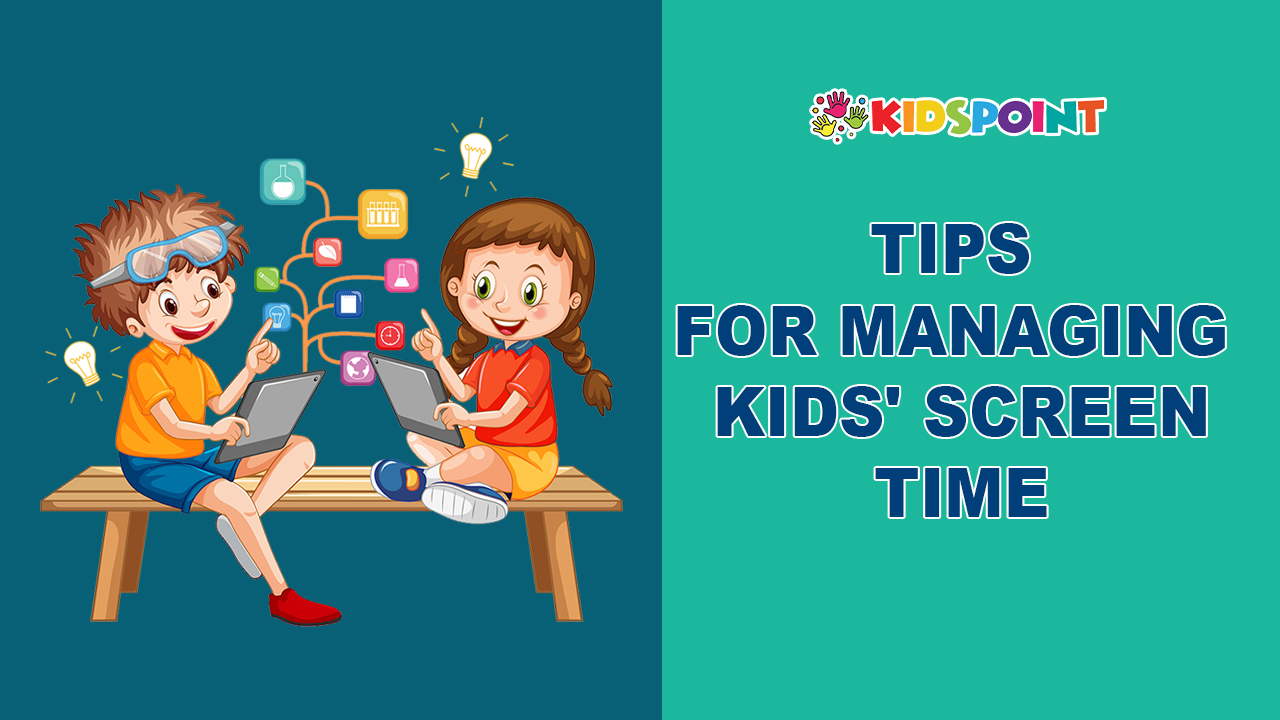In today’s digital age, children are growing up surrounded by screens, and it’s crucial for parents to strike a balance between the benefits and challenges of technology. As a parent associated with The Kids Point, a company dedicated to child development, you understand the importance of fostering a healthy relationship with screens. In this article, we’ll explore various tips for managing kids’ screen time, promoting a well-rounded approach to technology that aligns with The Kids Point’s commitment to holistic child development.
Establish Clear Guidelines
Setting clear guidelines is the first step in managing kids’ screen time effectively. Establishing rules helps children understand when and how much screen time is allowed. Consider factors like age, school requirements, and other activities when determining screen time limits. Collaborate with your child to create a set of rules, making them more likely to adhere to the guidelines.
Lead by Example
Children often mimic the behavior of their parents. If you want your child to have a healthy relationship with screens, it’s crucial to lead by example. Demonstrate responsible screen use by limiting your own screen time, especially during family activities or meals. When children see their parents practicing moderation, they are more likely to follow suit.
Encourage Outdoor Activities
Balancing screen time with outdoor activities is essential for a child’s physical and mental well-being. Encourage sports, nature walks, or other physical activities that provide a break from screen exposure. Outdoor play not only promotes physical health but also stimulates creativity and social skills, contributing to a more holistic development.
Designate Screen-Free Zones
Create designated areas in your home where screens are not allowed. Bedrooms, for example, should ideally be screen-free zones, promoting better sleep hygiene. Meal times and family gatherings are also ideal opportunities to establish screen-free zones, fostering better communication and interpersonal skills.
Educate About Content
Not all screen time is created equal. Educational content can be valuable for children’s learning and development. Be proactive in selecting age-appropriate and educational apps, games, and TV shows. Engage with your child during screen time to discuss the content, encouraging critical thinking and active learning.
Monitor Online Activities
As children grow older and gain access to the internet, it becomes crucial to monitor their online activities. Set up parental controls, use kid-friendly search engines, and educate them about online safety. Regularly discuss their online experiences, making sure they feel comfortable sharing any concerns or questions.
Create a Technology Schedule
Establish a technology schedule that includes designated times for homework, recreational screen time, and other activities. Having a structured routine helps children understand that screen time is a part of their day, but it should be balanced with other responsibilities and activities.
Promote Social Interaction
Excessive screen time can sometimes lead to a lack of social interaction. Encourage your child to engage in face-to-face interactions with family and friends. Plan playdates, outings, or family game nights to foster social skills and emotional intelligence.
Model Healthy Digital Behavior
In addition to setting time limits, it’s crucial to teach children about responsible digital behavior. Discuss the importance of respectful communication online, the consequences of cyberbullying, and the significance of protecting personal information. Instill a sense of digital citizenship early on.
Establish a Wind-Down Routine
Implement a wind-down routine before bedtime to help children transition from screen time to a more relaxed state. Avoid screens at least an hour before bedtime, as the blue light emitted can interfere with sleep patterns. Instead, opt for calming activities like reading a book or engaging in a quiet family activity.
Encourage Hobbies and Creativity
Help your child discover and pursue hobbies that don’t involve screens. Whether it’s drawing, playing a musical instrument, or engaging in a craft, encouraging non-screen-related activities fosters creativity and self-expression. This also provides an alternative to screen time during leisure hours.
Be Flexible and Adapt
As children grow, their needs and interests change. Be flexible with screen time rules and be willing to adapt them as needed. Regularly reassess the guidelines to ensure they remain appropriate for your child’s age and developmental stage.
Incorporating The Kids Point’s expertise into the management of kids’ screen time allows parents to navigate the digital world with a tailored and thoughtful approach. By setting clear guidelines, leading by example, and promoting a balanced lifestyle, parents can ensure that their children develop a healthy relationship with screens in alignment with The Kids Point’s dedication to holistic child development. Remember that the goal is not to eliminate screen time entirely but to ensure it coexists harmoniously with other essential aspects of a child’s life, contributing to their overall well-being and development.


